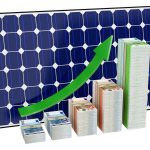Selecting the most efficient laundry machines for your family is an essential task you will need to undertake. With the rising costs of energy and the increasing consciousness towards environmental concerns, it’s about time you start considering energy-efficient washing machines and dryers. Not only will you be playing a part in saving the environment, but you’ll also be saving a significant amount in utility bills.
Understanding your Laundry Needs
Before you even begin looking at different laundry machine models, first understand your family’s laundry needs. This will determine the machine’s capacity, cycle, size, and time that best suits your home.
A lire en complément : How can I maximize space with multifunctional furniture in a UK studio apartment?
For a family of four living in the UK, the average weekly wash consists of around 8-10 loads, depending on the lifestyle. This can increase during winter or if you have younger children. Therefore, it’s important to consider the capacity of your machine. Most washing machines range from 5kg to 12kg, with each kilogram capable of washing approximately five t-shirts. A 7-9kg machine would be ideal for a family of four.
The machine’s cycle time is another factor to consider. The average cycle time for most washing machines is about 2 hours, but there are models that offer quick wash options. These can be beneficial if you often find yourself with a mountain of laundry and little time.
Dans le meme genre : How do you optimize a UK kitchen for wheelchair accessibility?
Washing machines come in different sizes. Measure your laundry room and keep in mind that you need to leave space for pipes and ventilation. A standard size washing machine has a width of about 60cm, but there are also slim models available with a width of 40cm.
Lastly, consider the machine’s spin speed. This is what removes water from your clothes after a wash, reducing the time needed for drying. Machines with a higher spin speed will remove more water, but may also be noisier and have higher energy consumption.
Energy Efficient Washing Machines & Dryers
Energy efficiency should be at the forefront when selecting a laundry machine. Not only will this reduce your energy bills, but also your carbon footprint. Look for washing machines and dryers with the highest energy rating, which in the UK is A+++.
A significant factor that influences a machine’s energy efficiency is its water consumption. On average, a washing machine uses about 50 litres of water per wash. Choose a machine with a lower water consumption to save on your water bills.
Washing machines with a load sensor are also energy-efficient. These machines detect the load size and adjust the water and energy consumption accordingly. This is particularly useful if you don’t always have a full load to wash.
Dryers with heat pump technology are the most energy-efficient. These dryers use heat to dry your clothes and then recycle this heat for the next cycle. Though they may be slightly more expensive, they will save you money in the long run.
Selecting a Reliable Brand
When it comes to purchasing a laundry machine, it’s also worth considering the brand’s reputation for reliability. Reviews and ratings from other customers can be a good indicator of this.
Reliable brands typically offer longer warranty periods and have a good track record for customer service. They also tend to have a wide range of models to choose from, featuring the latest technology and energy-saving features.
The Smart Features to Look For
Smart features can make your laundry chore easier and more efficient. These features range from being able to control your machine remotely using a smartphone app, to automatic detergent dispensing and self-cleaning cycles.
Smart washing machines allow you to start a wash cycle remotely, monitor its progress, and receive notifications when it’s done. This can save you a lot of time, especially on busy days.
Automatic detergent dispensing ensures that the right amount of detergent is used for each wash, promoting efficiency and better wash results. Some machines even have a self-cleaning cycle that cleans the drum using hot water, keeping your machine fresh and hygienic.
The Cost-Benefit Analysis
Lastly, consider the initial cost of the washing machine and the cost of running it. While energy-efficient machines may be more expensive upfront, they can save you money in the long term through lower energy and water bills.
Take the time to calculate the running costs by considering the machine’s energy rating, water consumption, and the number of washes you do per week. This will give you a better idea of the total cost and help you make an informed decision.
Washing Machine vs Washer Dryer
When choosing a laundry machine, you might be wondering whether to go for a washing machine or a washer dryer. A washer dryer is a combination of a washing machine and a tumble dryer, and it can save space in your laundry room.
However, there are some drawbacks to consider. Washer dryers often have a smaller drying capacity compared to their washing capacity, which means you might not be able to dry a full load of laundry at once. Additionally, they can be less energy efficient than separate washing machines and dryers, especially if you tend to use the drying function frequently.
If you have the space in your laundry room and you do a lot of drying, opting for a separate washing machine and tumble dryer could be more energy efficient. You could choose an energy-efficient washing machine and pair it with a tumble dryer that uses heat pump technology for maximum energy savings.
Also, consider the spin speed rpm of your washing machine or washer dryer. As mentioned earlier, machines with higher spin speeds can remove more water from your clothes, reducing drying time and energy consumption. But remember that machines with higher spin speeds may also be noisier and consume more energy.
Understanding the Energy Efficiency Rating
In the UK, washing machines and washer dryers are rated for their energy efficiency on a scale from D to A+++, with A+++ being the most efficient. The energy efficiency rating takes into account the machine’s energy consumption, water consumption, and spin speed rpm.
An energy-efficient machine will have a higher upfront cost, but it can save you money in the long run because of lower energy and water bills. It’s worth noting that the energy rating only applies to the washing cycle, not the drying cycle in washer dryers.
A higher energy rating doesn’t necessarily mean the machine will perform better in terms of cleaning your clothes. It simply means the machine is more efficient in terms of energy use. So, you’ll need to consider other factors like the machine’s size, capacity, and quick wash options when making your selection.
Conclusion
Choosing the most efficient laundry machine for a UK family of four requires careful consideration of multiple factors. You need to understand your laundry needs in terms of machine capacity, cycle time, size, and spin speed. Consider whether a washing machine or a washer dryer is the best fit for your lifestyle and space constraints.
Prioritise energy efficiency in your selection process to save on utility bills and reduce your environmental footprint. Look for machines with a high energy rating, low water consumption and smart features like load sensors, heat pump technology and automatic detergent dispensing.
Consider the brand’s reputation for reliability and customer service, as well as the initial cost of the machine and the cost of running it. And finally, don’t forget to measure your laundry room and leave space for pipes and ventilation. By considering all these factors, you can select the best washing machine or washer dryer for your family’s needs and make your laundry chore a breeze.













